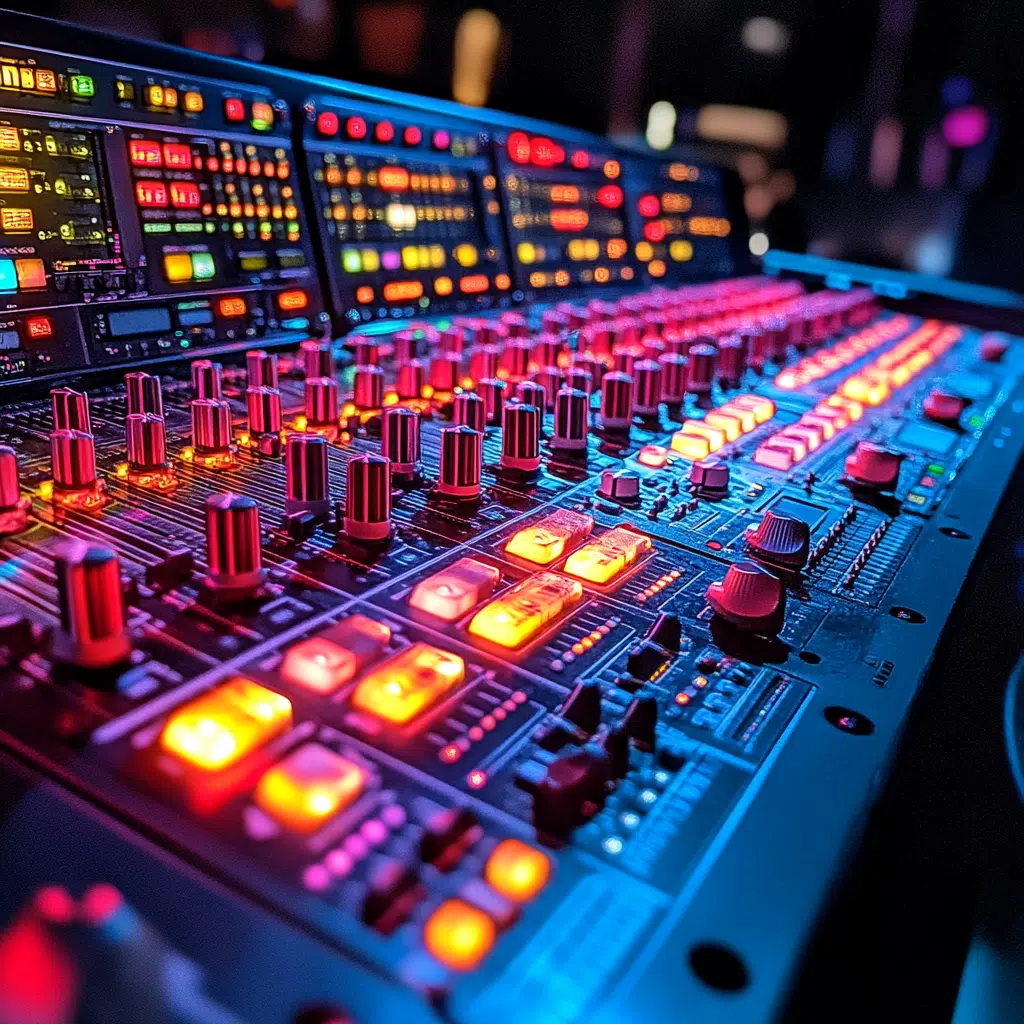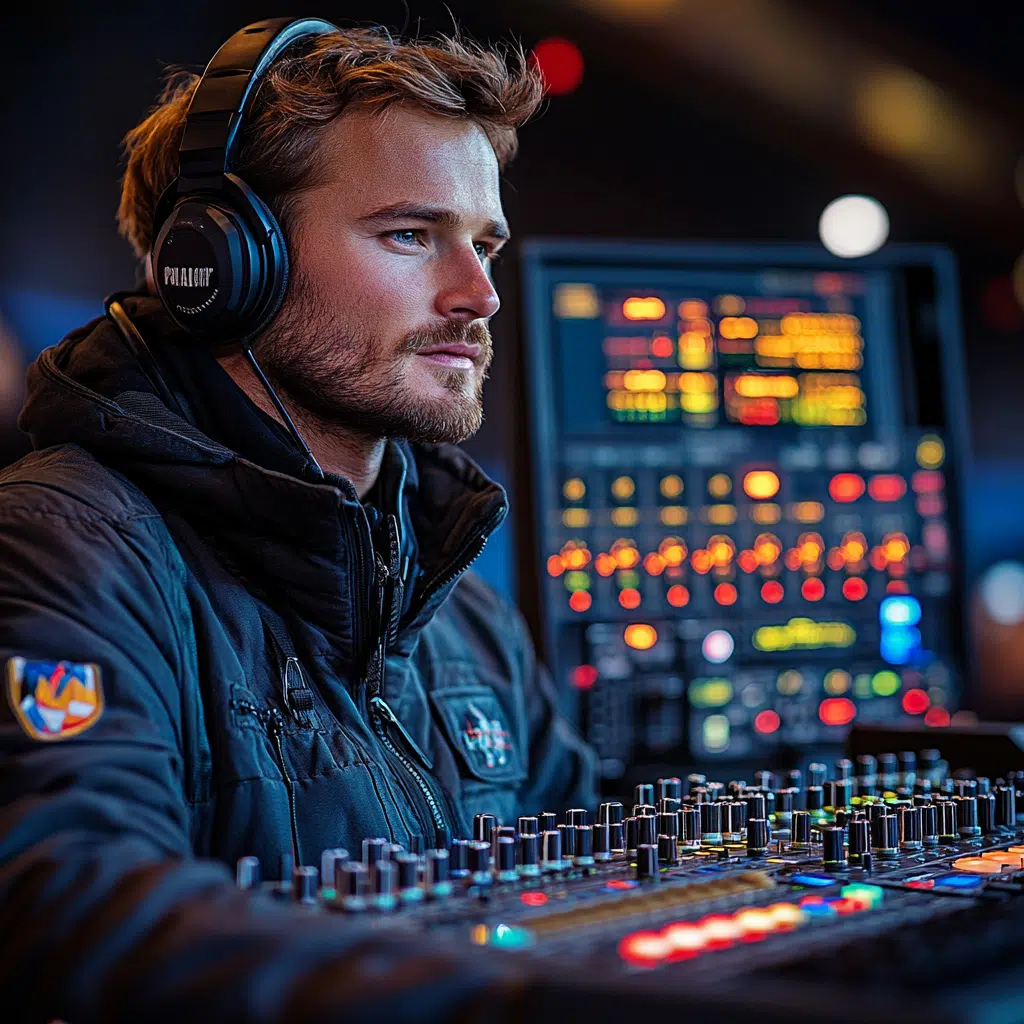Welcome to the world of Remote Sound Mixing Services, where groundbreaking technology meets artistic excellence. This approach is trailblazing its way into the audio post-production industry, offering filmmakers, TV producers, and multimedia creators the perfect solution to enhance their projects with unparalleled soundscapes. With a sound mixing revolution underway, it’s clear that geographical barriers are a thing of the past. Now you can craft immersive, high-quality sound from anywhere in the world.
Why Remote Sound Mixing Services Are Revolutionizing the Industry
In today’s fast-paced environment, the buzz around Remote Sound Mixing Services is impossible to ignore. This innovative method is reshaping how audio post-production is done—making it more accessible, efficient, and flexible than ever before.
The Rise of Remote Sound Mixing Services
Enhanced Accessibility and Flexibility
Let’s face it—Remote Sound Mixing Services have burst onto the scene, turning the audio industry on its head with their global reach. Gone are the days when you were tethered to a local studio, hoping to get top-notch sound. Thanks to platforms like SoundBetter and Mix with the Masters, connecting with mixing maestros from halfway across the globe is as easy as pie. This means that regardless of whether you’re filming in Utah or editing in a quiet Baltimore studio, your project can benefit from the expert touch of industry veterans without ever leaving your desk.
Cost Efficiency Without Compromising Quality
Don’t want to break the bank when producing your film or TV series? Save those dollars for more pressing needs. By cutting out pricey studio time and travel expenses, Remote Sound Mixing Services offer an enticing alternative. This not only makes high-caliber sound more approachable for indie filmmakers but also allows them to allocate budgets more wisely—potentially towards securing a top-tier mortgage rate in the filmmaking hubs like Los Angeles or Austin.
Speedy Turnarounds with Advanced Tools
In an age where speed is king, the expectation for quick deliverables is ever-present. Utilizing state-of-the-art software such as Avid’s Pro Tools Cloud Collaboration and Steinberg’s VST Connect, artists now enjoy brisk turnaround times. These platforms foster a real-time, collaborative environment, ensuring your final product is delivered without a hitch. With these tools, remote audio mixers master their craft at lightning speed.
Challenges and Considerations in Remote Sound Mixing
Maintaining Communication and Artistic Vision
One must navigate the intricacies of clear communication between clients and mixers to keep artistic vision intact. Tools like Zoom and Slack have become indispensable allies in ensuring everyone stays on the same page. These platforms help iron out misunderstandings and foster smooth collaboration, so each project reflects the creative vision from concept to completion.
Data Security and Intellectual Property
With great power comes great responsibility, especially in data security. When you’re using cloud services, employing robust security measures—like encryption and secure file-sharing protocols—is non-negotiable. Protecting intellectual property remains a top priority, offering peace of mind and safeguarding your masterpiece.
Embracing the Future of Sound with Remote Services
As Remote Sound Mixing Services continue to weave their magic across the audio landscape, their potential is boundless. By embracing these advancements, filmmakers and multimedia creators unlock avenues for creative exploration and connect with sound professionals across continents. The influence of technology ensures the growth of this industry is sky-high.
As we boldly venture into this new horizon, the benefits of remote sound mixing services are for everyone to embrace. Reinventing professional audio design from the ground up means that captivating and inspiring audiences is now more feasible than ever. Your story’s sound just got its guardian angel. Whether crafting a cinematic score or dialing up an atmospheric Dolby Atmos mix (check out Remote Mixing’s prowess here), the possibilities are as limitless as the sky.
Remote Sound Mixing Services: Unmatched Quality
Surprising Evolution of Remote Sound Mixing
Remote Sound Mixing Services have come a long way, much like the architectural transformation witnessed in the diverse style Of Houses across regions. The growth in digital technology has truly opened up a world where sound mixing can be achieved with the precision of a master craftsman from practically anywhere. Utilizing cutting-edge tools, today’s sound artists can create immersive audio experiences that rival traditional methods. Fascinatingly, studios are being set up not just in bustling urban centers, but even in rural areas, thanks to innovations akin to those seen in housing finance options like the usda rural home loan, which makes establishing a home studio in a peaceful countryside a viable dream for creatives.
Technical Wonders and the Sound of the Future
In the intricate dance of audio mixing, every element is carefully balanced, much like securing the best Mortage rate to ensure a stable financial future. Remote services utilize cloud computing to allow sound engineers to effortlessly collaborate across the globe. Did you know that some audio mixing software is so advanced it can synchronize tracks even if the contributors are working from different continents? This means that no matter where a film is being shot, it can maintain continuous sound quality akin to production hubs with favorable mortgage rates in Utah, ensuring affordability and sustainability in the long haul.
Fun Tidbits from the Industry
Trivia time! The first feature film mixed entirely using remote services was a groundbreaking achievement, setting a new standard and proving the capabilities of this approach. As technology races forward, much like constantly shifting mortgage rates, remote sound mixing is poised to dominate the industry by reducing overhead costs and increasing versatility. Another little-known fact is that some films utilize sounds recorded from everyday sources, like household items, to create rich soundscapes. It’s akin to the magic of transforming a standard house’s architecture into a unique dwelling by leveraging your options creatively and effectively. With remote services, the sound is not just heard; it’s experienced, influencing storytelling in ways we’re only beginning to discover.
How much do sound mixers charge?
Sound mixers typically charge anywhere from $50 to $150 per track for mastering. If you’re looking for mixing services, these can range from $200 to $800 per track, depending on the complexity and demands of the project. These rates can vary widely based on the sound mixer’s experience and reputation.
How much does studio mixing cost?
Studio mixing costs vary greatly. On average, mixing a track in a studio can cost between $200 to $800, considering the location and quality of the studio, as well as the engineer’s expertise. Rates can fluctuate more significantly if additional services such as editing or added production are involved.
How to find someone to mix your music?
To find someone to mix your music, reaching out to your music buddies is a great start. Ask other musicians or industry friends for referrals, as they might know experienced mixing engineers who have done good work. Online platforms dedicated to music collaboration and freelance services can also be helpful.
Can I pay someone to mix and master?
You can definitely hire someone to mix and master your tracks. There are many professional services available, both in-person and online, offering a range of prices to fit different budgets. Even if you’re just recording for fun, there are affordable freelance options that provide great value.
How much does a sound guy charge?
The cost for hiring a sound guy can vary. For events or live performances, rates depend on the event size and location, but generally, you might expect to pay anywhere from $200 to $500 per day or event. This can be higher for large-scale events or more experienced professionals.
Do sound mixers get royalties?
Generally, sound mixers don’t receive royalties. They’re usually paid a flat fee or hourly rate for their work. However, if a mixer has a specific agreement or has contributed to the composition or production in a creative capacity, there might be exceptions.
How much does mixing services cost?
Mixing services typically cost between $200 to $800 per track. These services can adjust in price depending on the engineer’s experience, the length and complexity of the track, and any additional services required like editing or extra production.
How much does it cost to have someone mix your song?
Having someone mix your song can cost between $200 to $800 per individual track. This pricing typically includes professional mixing and occasionally some mastering, although separate mastering might come at an additional cost.
How much do DJs charge for mixes?
DJs generally charge per event or set rather than per mix, but for custom mixes or mixtapes, the rates can vary. While there’s no fixed rate, you might see charges ranging based on the DJ’s popularity, location, and the length of the mix. Event rates usually run higher.
Should I pay someone to mix my song?
Paying someone to mix your song can definitely be worth it, especially if you’re aiming for professional-level quality in your production. Professional ears can substantially enhance the sound to ensure it translates well across different playback systems, making it a solid investment for a polished final product.
How to legally mix music?
Mixing music legally involves making sure you have the rights to use all the elements included in your mix. This means securing licenses for any samples, tracks, or loops that aren’t originally created by you. Many artists use royalty-free music or obtain proper permissions to maintain legality.
How do DJs find music to mix?
DJs often find music to mix through various sources such as digital record pools, online music stores, and streaming services. Many also receive promos directly from record labels and artists, ensuring they have the latest tracks. Networking and music forums are also great ways to discover new tracks.
Is professional mixing worth it?
Professional mixing is often worth it if you’re aiming for high-quality production and a polished sound. The nuances a skilled mixing engineer can bring to your tracks might elevate your music to professional standards, making it more competitive in the industry.
Should I mix or master first?
Mastering should come after mixing. Mixing involves adjusting and combining individual tracks to create a cohesive sound, while mastering puts the finishing touches on a final mix, adjusting the overall sound and preparing it for distribution.
How long should a mix and master take?
Typically, mixing and mastering a track can take anywhere from a few hours to several days, depending on the complexity of the project and the working process of the engineer. For full albums, this process can span several weeks as multiple iterations and reviews may be necessary.
How much should I charge for sound effects?
Charging for sound effects depends on the project and client requirements. Rates can vary from $20 to $200 per sound effect, considering the complexity, originality, and whether the sound is curated from a library or custom-made.
How much do producers charge for mixing?
Producers’ rates for mixing can vary widely. You might expect to pay anywhere from $200 to $800 per track, depending on the producer’s experience, reputation, and the track’s complexity. Some producers bundle services including production, mixing, and mastering for set project prices.
How much do movie sound mixers make?
Movie sound mixers, especially those working in Hollywood, can make a substantial income. Entry-level salaries might start from $40,000 a year, while experienced mixers can earn upwards of $100,000 annually, with top professionals commanding even higher fees based on project budgets.
How much do live sound mixers make?
Live sound mixers’ incomes can vary significantly. Rates are often based on experience, the scale of the show, and location. Entry-level live sound mixers might make around $20,000 to $40,000 annually, with seasoned professionals earning significantly more, especially if they tour with high-profile acts.


